- Forum
- categories
- Resource recovery
- Fertiliser, soil conditioner, production of crops
- Urine reuse or infiltration
- Using urine from school UDDTs as fertiliser for apple and cherry trees in Gansu Province, China - update on a successful business
Using urine from school UDDTs as fertiliser for apple and cherry trees in Gansu Province, China - update on a successful business
35.8k views
Re: Business Report from the school UDDTs Donated by SOHO China Foundation
As a volunteer for teaching the students to use the toilets, I have been using the urine to grow cherries and apples with a good profit since 2010.
In 2011, the harvest was around 5,000 kg apples with a income of 120,000 RMB cooperating with one orchard owner.
In 2012, the harvest was 60,000 kg apples,cherries and vegetables with an income of 1.3 million RMB working with 30 orchard owners.
In 2013, I cut the production to 40,000 kg apples and cherries with an income of 1.1 million RMB becuase of the insufficient urine.
The profit to my family is about 0.8 million RMB for the apple and urine business during last 3 years. Neither the schools nor the farmers pay me for transporting the urine.
Marketing and orders processing are done by the Internet 100%. The products are delivered to the thousands of customers in big cities over 1,000 km away. Over 50% orderes were placed on us before the actual harvest.
Within last 12 months, among 1485 comments on the product quality , only 3 bad comments were found.
Over 3,000 people have been registered as my potential customers in my Internet homepage shop72303853.taobao.com/shop/view_shop.h..._number_id=889090749 .
Over 30 news media have covered my story of apple and urine giving me many opportunies to advocate the sustainable sanitation business.
Chen Xiang Yang, an apple dealer,is growing apples and cherries with the human waste collected from 31 school UDDTs donated by SOHO China Foundation, based in Tianshui City, Gansu Province , China. This email address is being protected from spambots. You need JavaScript enabled to view it., tel:0086 151 9380 3972
Attachments:
-
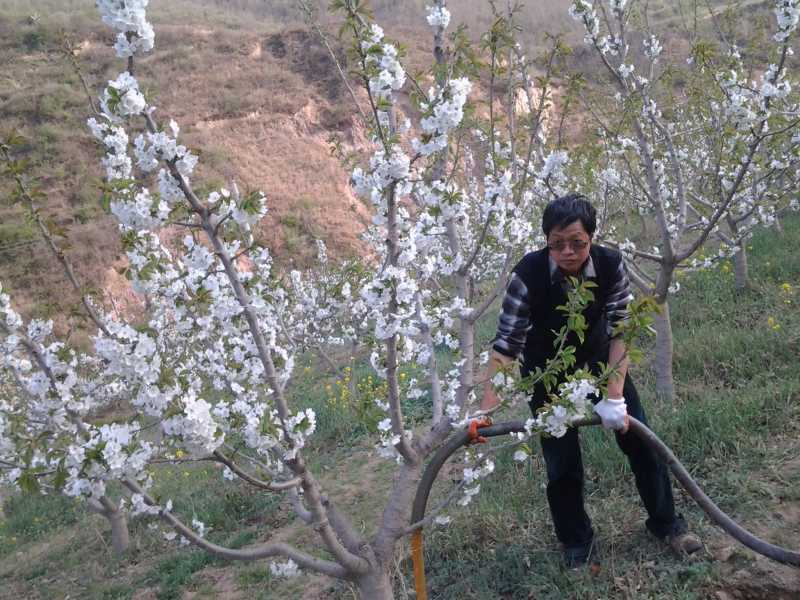 20130330_174039.jpg
(Filesize: 79KB)
20130330_174039.jpg
(Filesize: 79KB)
-
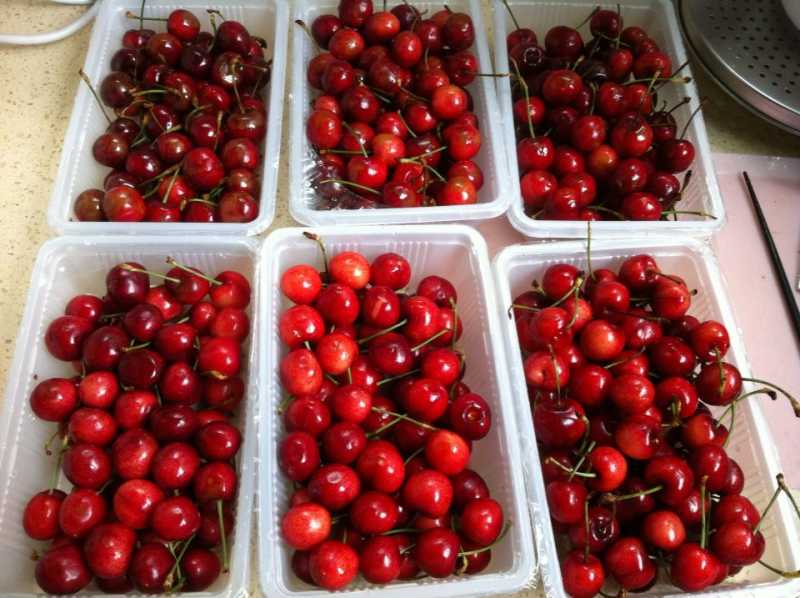 1371533792.jpg
(Filesize: 59KB)
1371533792.jpg
(Filesize: 59KB)
-
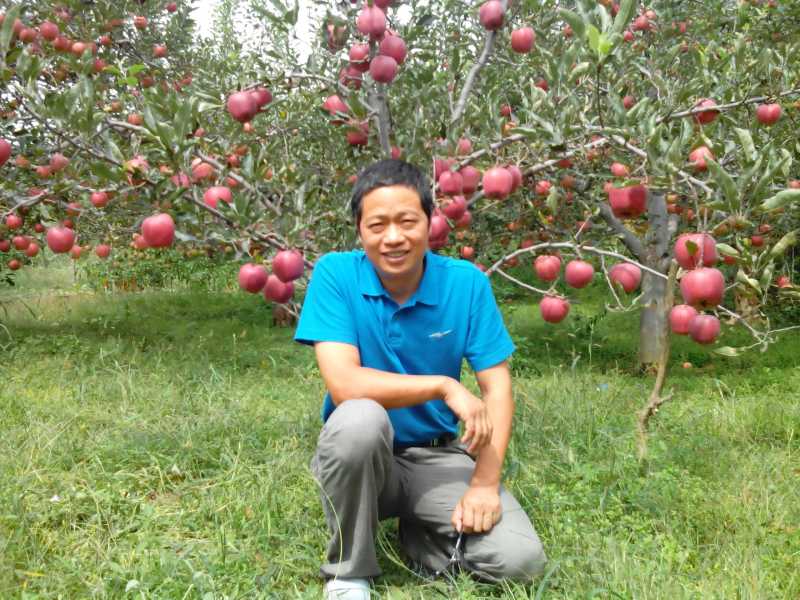 IMG_201309...2121.jpg
(Filesize: 80KB)
IMG_201309...2121.jpg
(Filesize: 80KB)
-
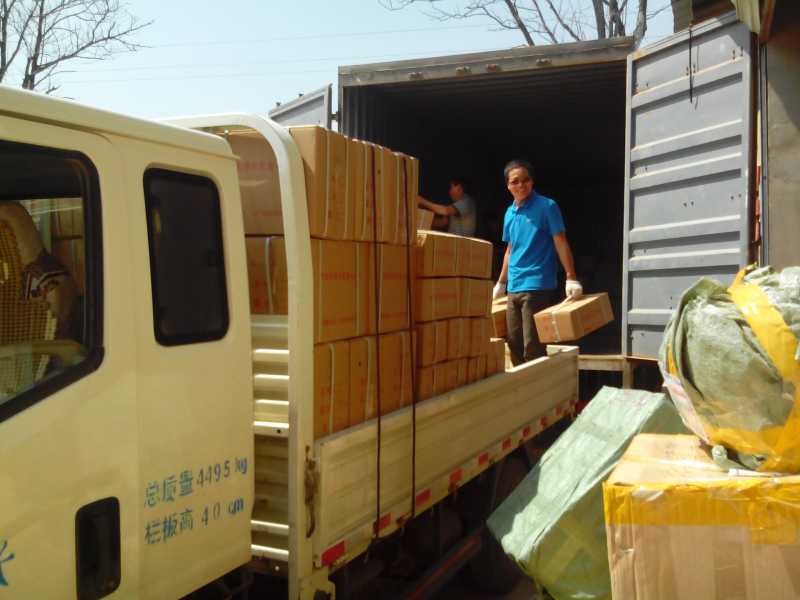 IMG_201309...7051.jpg
(Filesize: 40KB)
IMG_201309...7051.jpg
(Filesize: 40KB)
-
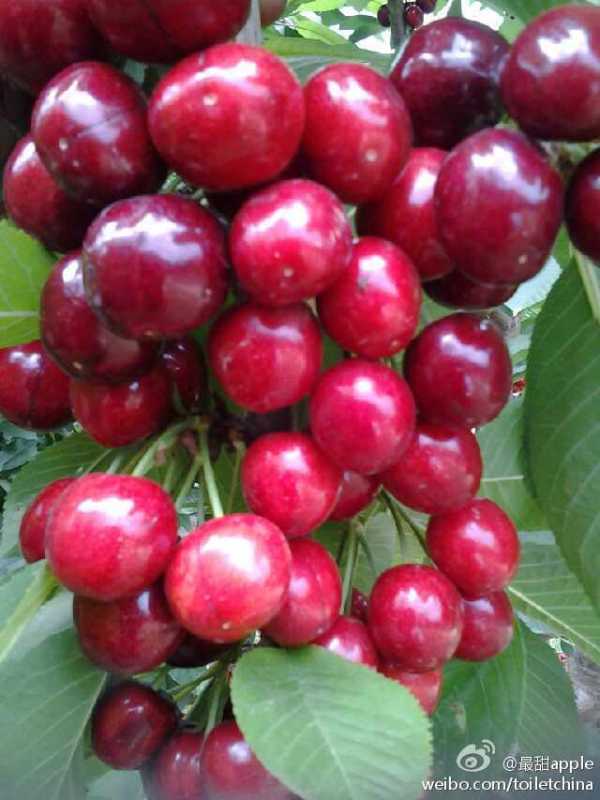 shinnycherriesc.jpg
(Filesize: 43KB)
shinnycherriesc.jpg
(Filesize: 43KB)
-
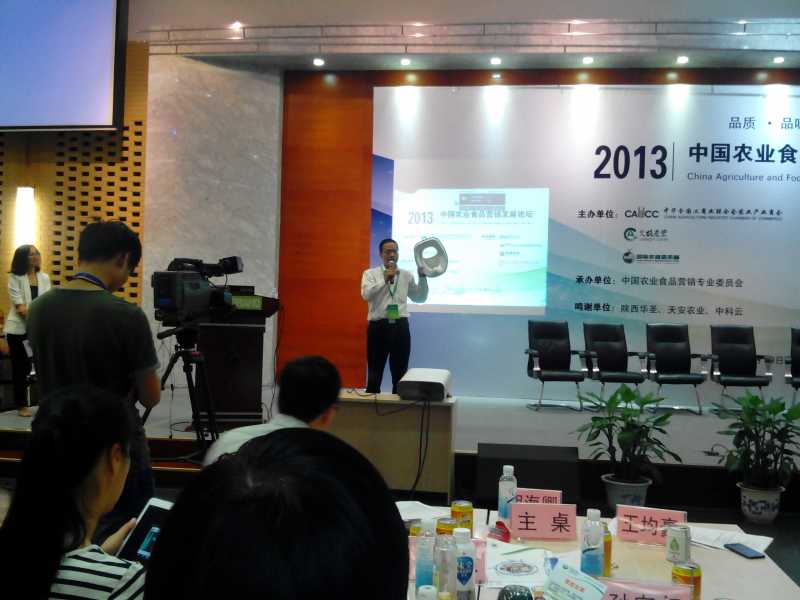 IMG_201307...3741.jpg
(Filesize: 42KB)
IMG_201307...3741.jpg
(Filesize: 42KB)
Please Log in to join the conversation.
You need to login to replyi am using the urine only because the feaces is quite limited though it is a good conditioner for the soil.
Few workers are interested in handling the solid waste.
Chen Xiang Yang, an apple dealer,is growing apples and cherries with the human waste collected from 31 school UDDTs donated by SOHO China Foundation, based in Tianshui City, Gansu Province , China. This email address is being protected from spambots. You need JavaScript enabled to view it., tel:0086 151 9380 3972
Please Log in to join the conversation.
You need to login to reply- KeithBell
-
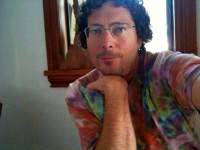
- User is blocked
Less- Posts: 97
- Karma: -10
- Likes received: 15
www.chinadaily.com.cn/china/2012-07/12/content_15571981.htm
That's a pretty amazing difference and also difficult to believe. Let's also consider the microbial differences as soil microbiology is known to affect nutrient content in food. Wouldn't feces have a very high value as fertilizer when factoring microbes? Urine, of course, is not sterile, so there may be important such benefit in urine, as well, from a microbial standpoint.
www.sciencedaily.com/releases/2012/04/120409164156.htm
Are you also using the feces as fertilizer? Here's a similar project in Nepal:
edition.cnn.com/2013/06/04/business/nepa...man-urine-fertilizer
Please Log in to join the conversation.
You need to login to reply- Elisabeth
-
- User is blocked
- Freelance consultant since 2012
Less- Posts: 3372
- Karma: 54
- Likes received: 932
Re: Is urine diversion really the future?
Please let the forum readers know more about the interesting work that you do in China with those apple trees. We don't hear enough about ecosan in China on this forum.
Perhaps you could give us an update on the story we reported on your work in May 2012 when we had a short news article in the GIZ ecosan newsletter (when I still worked for GIZ)?*
Update: A clean dirty business with apples – May 2012
To facilitate the full operation of 31 UDDTs donated by SOHO China Foundation, Mr. Chen (a consultant) transformed the ecosan project into a profitable business by growing apples with the urine in Tianshui City of Gansu province. In 2011 about 100 apple trees in a 1,200 m² orchard were cultivated, applying about 40,000 l of urine from the SOHO School ecosan toilets. About 4,800 kg of apples were harvested and sold to middle class consumers in big cities. With the positive consumer response a profit margin of about 25% was made.
2-page description about the project:
www.susana.org/images/documents/nl43/Chi...n_Dirty_Business.pdf
Two quotes from this 2-page description:
The farmers are even happier than all the other stakeholders as do not
need to buy the chemical fertilizer with cash but pay me back the urine
transporation fee after the harvest.
With a loan, I bought a 5-ton plastic tank and a truck for enhancing the efficiency of transporting the urine from the 31 schools to the orchards owned by 10 farmers. My target is to grow 100, 000 kg apples with half-a- million RMB profit to be invested in buiding a compost plant like that one in the China-Sweden Erdos Eco-town in 2012.
SOHO China Foundation website (in Chinese): www.sohochinafoundation.org/
61 photos about your project available here:
www.flickr.com/photos/gtzecosan/sets/721...903/with/7286289662/
Three example photos:
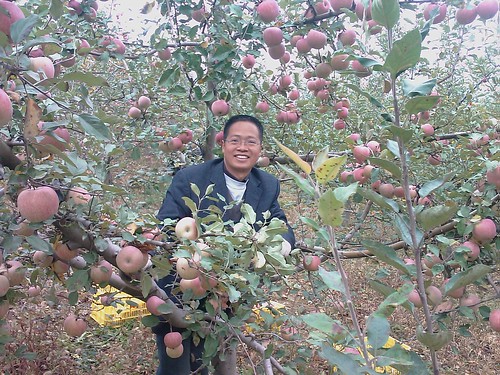
The toilet consultant of SOHO China Foundation, Scott Chen by Sustainable sanitation , on Flickr

PA022493 by Sustainable sanitation , on Flickr
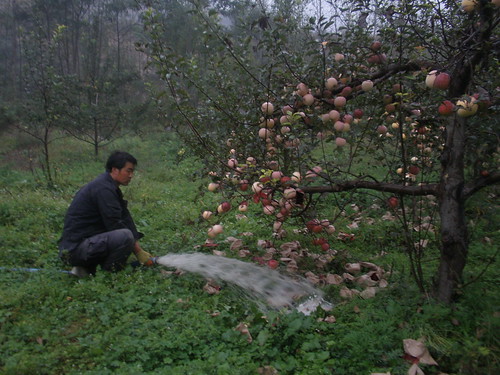
PA022463 by Sustainable sanitation , on Flickr
Regards,
Elisabeth
* Sadly, due to a restructuring of the GIZ website, these old GTZ/GIZ ecosan newsletters (I think it was about 40 newsletters since 2001) are no longer available on the GIZ website. I hope this will still be rectified by uploading them into the SuSanA library. Meanwhile, luckily some of the newsletters made it onto other people's websites and are thus still available via a Google search, e.g. this one: groups.yahoo.com/neo/groups/klimakoopera...ns/topics/1644?var=1
Freelance consultant on environmental and climate projects
Please Log in to join the conversation.
You need to login to replyRe: Using urine from school UDDTs as fertiliser for apple and cherry trees in Gansu Province, China - update on a successful business
Chen Xiang Yang, an apple dealer,is growing apples and cherries with the human waste collected from 31 school UDDTs donated by SOHO China Foundation, based in Tianshui City, Gansu Province , China. This email address is being protected from spambots. You need JavaScript enabled to view it., tel:0086 151 9380 3972
Please Log in to join the conversation.
You need to login to reply- bayeboah
-
Topic AuthorLess
- Posts: 7
- Likes received: 3
Examples of ecological sanitation at scale
I have been following this discussing on examples ecosan projects to scale (forum.susana.org/forum/categories/17-fer...-sanitation-at-scale) and I will like to bring to your attention an ecosan in China with commercial potential.
The project started in 2009 and it is said to be one of the largest ecosan projects in china financed by local charity (Soho China foundation). 10 school ecosan toilets were built in 2009 and an additional 20 in 2010 in 30 schools located in different areas of Tian Shui city in China. Currently, about 20,000 pupils and teachers are using the 30 toilet blocks equipped with 28 standard squatting urine diversion toilets. The using of UDDTs is a part of the Soho China Foundation Tian Shui Children Virtue Training project. Cleanness is regarded as one virtue that should be achieved with the newly-donated toilets with hand-washing water supplies. This is a good initiative to that can impact and transfer knowledge to younger generations and I think this is an important aspect of pushing and maintaining the ecosan agenda.
The project has been transformed into a commercial venture by using the urine from the school toilets to fertilise apples farms around the city and selling the harvest. About 100 apple trees in a 1,200 m² orchard have been cultivated, applying about 40,000 litres of urine from the SOHO School ecosan toilets. About 4,800 kg of apples were harvested and sold to middle class consumers in big cities. some of it were sold on an online marketing blog. Reports from the project show that consumers are satisfied with the apple quality with 50% repeat purchasers. With the positive consumer response a profit margin of about 25% was made which is good. Also more orchard owners in the area are growing apples with the urine because farmers reduce the use of chemical fertilizer which implies a reduction in farm expenditure. They now pay only for the transportation of urine to their respective farms after the harvest.
It is also known that SOHO China Foundation would donate more toilets to the schools after the smooth operation of the initial toilets. This means the project could enlarge its scale of operation in the near future.
To me the project seems to have to have features that can make it a successful ecosan project at scale and I will be very happy to see it expand.
New photos of the project have been added by Scott Chen in May 2012. Here is the link to the photos on flickr: www.flickr.com/photos/gtzecosan/sets/721...903/with/5890558581/
The photos show you how training of the pupils, the collection and transportation of the urine, applicaition of the urine to the apples in the fields, harvesting and marketing of the apples.

P4134580 by Sustainable sanitation , on Flickr

P1010583 by Sustainable sanitation , on Flickr
Regards
Bismark
Note by moderator: read more about this project and see contact details in the May ecosan newsletter of GIZ, which you can access here:
www.giz.de/Themen/en/9403.htm
Please Log in to join the conversation.
You need to login to reply- Forum
- categories
- Resource recovery
- Fertiliser, soil conditioner, production of crops
- Urine reuse or infiltration
- Using urine from school UDDTs as fertiliser for apple and cherry trees in Gansu Province, China - update on a successful business








